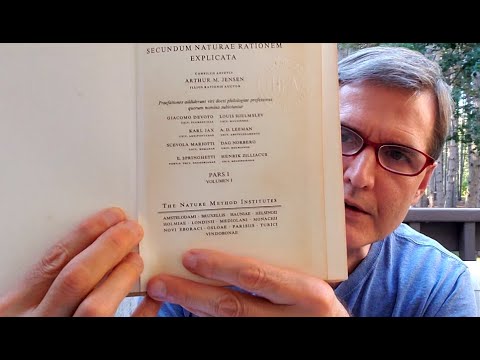I remember you mentioning before you found yourself going through French conjugation tables (and doing exercises?) as you were not satisfied with the speed with which input alone was teaching you the lesser frequent conjugations. With this comment and the above one I imagine the analogy of a wrecking ball coming in and destorying a house. Slowly, step-by-step, through trial-and-error, a new house is built. Upon stepping back to view the newly completed house, you realise that it looks exactly the same as the initial house, except with different colour windowsills.
That said, what I do on a daily basis for my language study looks nothing like a language class. It is almost entirely input, but not the ‘Stephen Krashen / comprehensible input’ way. As in, I use translations and/or dictionaries instead of only relying on context to understand unknown words and grammar.
However, I wouldn’t be surprised if you actually converged on the same or similar techniques to those used in language classes. They, too, went through a trial-and-error process over many years by many organisations to reach the techniques they currently use. Unfortunately, their results are mainly diluted by large class sizes and people (children) who don’t want to be there creating distractions. They are, however, quite holistic, in that they often insist on practising the four main skill areas, and you do a large variety of activities (which is much less fragile than relying on only one or two). For instance, on the rare occasion, when I actually don’t procrastinate touching my grammar textbook, I read the explanations and do the exercises (cloze exercises, conjugating verbs, translating sentences, reading out loud, comprehension questions, etc.) and find it very useful and efficient.
What is worth noting is that I consider language classes should be the baseline for efficiency comparisons, because it’s considered the ‘default’ method in our culture/s. It’s what you were previously using to learn a foreign language in school and it’s probably the first thought as how to learn a language by many people. However, when someone decides against going to a language class and instead branches out on their own to learn a language, they download DuoLingo or whatever the latest app/method in fashion is, and their efficiency actually drops. It’s actually lower than the default option! It’s only those who stay with it and use trial-and-error to get out of the valley of uselessness and inefficiency, do they actually increase it, and only with more tinkering do their methods end up surpassing the efficiency of a standard language class, aka the baseline.
@jt23’s point is interesting that he optimises for enjoyment, because he knows himself well enough to know that he’ll lose interest and give up otherwise. I wouldn’t say, I, personally, optimise for enjoyment. It’s an important factor, for sure, but not the only one I’m interested in. I would also like to get to a high level in my languages at a faster speed, so I can enjoy them more. As in, be able to read the great books, watch the classic movies, and chat confidently with native speakers.
As for the way I find my learning strategy, I’d say the number one way I do it is logical reasoning. This is especially the case with the background of knowledge I have attained about language learning, its stages, techniques, etc. over the years. This results in me making more informed and nuanced arguments than I did before. From this, I can consider if a particular adjustment to my technique or a new technique is worth my testing. Then, as @GMelillo, I try out the technique and after some period of time, I evaluate it. I’m not always systematic in this, but sometimes I am. The issue with these evaluations is sometimes there is no particular systematic way I can think of to measure the changes, as language learning is very complex, so often I have to go off some guess, ‘feel’, or intuition. This is especially the case, if you use the new technique with a new language (eg. consider Italian vs. Russian, where you have a new alphabet and much fewer cognates), but also occurs within the same language as you become more efficient with a language, the higher level you become. You somehow have to take these factors in account.
How do you effectively set up language learning trials (experiments)? How do you go about evaluating them? Does anyone have any examples of methods they’ve tested out and discarded as they think the methods didn’t live up to what they thought they would be? How did you come to this decision?
For example, I, too, like @Dominic_Olofsson-Tuisku have used reading speed as a proxy for efficiency for several of my evaluations. Recently, I was interested in seeing how much my reading speed fluctuates, so I took multiple measurements throughout the same book. I didn’t record any other variables, but I could observe the incredibly obvious affects of being tired and mood (affecting ability to concentrate).

